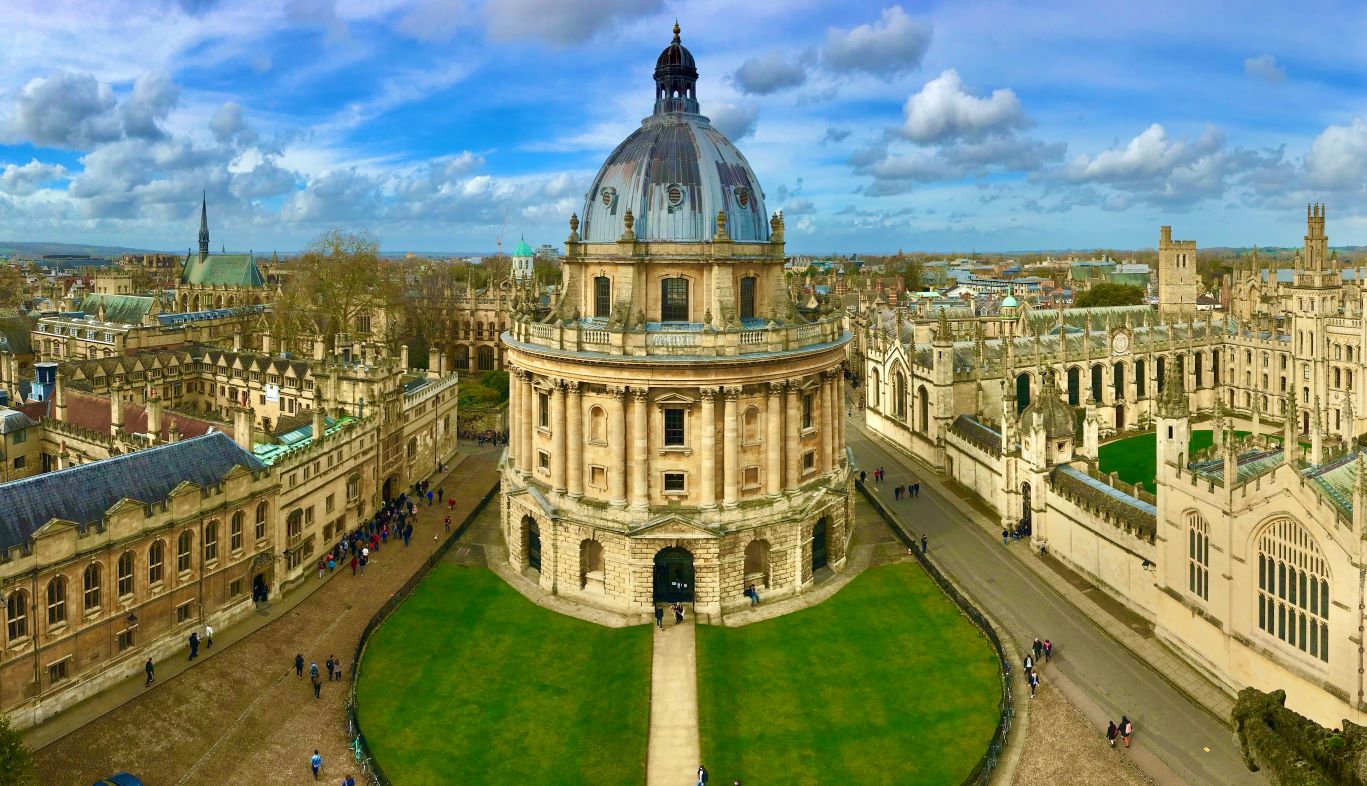31 newly minted PhDs have been awarded a Rubicon grant by the Dutch Research Council NWO to gain international experience in their field. Three of them are from TU Delft.
Oxford University, where a TU Delft scientist is gaining experience through a Rubicon grant. (Photo: Ben Seymour via Unsplash)
These are Dr Mario Avellaneda, Dr Mario Gély and Dr Adriana Guatame-Garcia. Biophysicist Mario Avellaneda stayed on at the Sander Tans Lab (Faculty of Applied Physics/Amolf) after his PhD in 2019. He left for the Institute of Science and Technology Austria in July 2020. There he will spend two years researching how electrical signals on cell membranes help immune cells detect pathogens in the body.
Quantum physicist Dr. Mario Gély stayed on as a postdoctoral fellow at the Gary Steele lab (Faculty of Applied Sciences) after his PhD in 2020 and left in March 2021 to join the department of physics at Oxford University to capture ions. Ions captured in laser beams can work as excellent quantum bits. The aim is now to be able to realise these on a chip which should help to scale up the future quantum computer.
Dr Adriana Guatame-Garcia stayed on at TU Delft as a post-doctoral researcher after obtaining her PhD in 2019. Her research interests include sensor-based characterisation of minerals, infrared spectroscopy (lab, field and remote sensing) and chemometrics. Guatame-Garcia will join the Geo-Environmental Engineering group at Queen’s University (Canada) to study mineral weathering dynamics to assess long-term reactivity of mine wastes and their impact on effluent quality. This will help design sustainable waste storage before a single rock is excavated.
The young researchers are headed to institutions in the United States, United Kingdom, China, Australia, Canada and several European countries. The successful proposals include projects that focus on building smaller quantum computers, the history of maritime collaboration, and medicine for treating Parkinson’s disease.
Spread your wings
The intention of NWO’s Rubicon funding programme is to keep promising scientists in research. Thanks to these grants, after graduation they can spread their wings in international skies.
There are usually three application rounds for the Rubicon grant each year with approximately sixty scientists having their proposals honoured from a total pot of seven million euros, but everything was different last year. These 31 new awards are the results of the second and third rounds in 2020. The NWO received applications from 94 researchers, which means that close to one in three applicants managed to secure a grant.
The much sought after Rubicon grant has been around since 2005. It gives young Dutch scientists a chance to build an international network that they can continue to draw on for the rest of their careers.
Caesar
A Rubicon grant is a springboard to the fiercely coveted Veni, Vidi, and Vici grants. These awards take their name from the famous words of the Roman general Julius Caesar. The Rubicon is also associated with him: it’s the name of the river he crossed with his armies to seize power in Rome.
HOP, Bas Belleman / Delta
Translation: Taalcentrum-VU
Rubicon awards
- TU Delft 3
- Leiden 5
- UvA Amsterdam 4
- Groningen 3
- Radboud Nijmegen 2
- AMC 2
- Maastricht University 2
- Twente 2
- Erasmus Rotterdam 2
- LUMC 2
- Utrecht 2
- VU Amsterdam 1
- Amolf 1
- Uni Carlos III Madrid 1
Do you have a question or comment about this article?
redactie@hogeronderwijspersbureau.nl


Comments are closed.